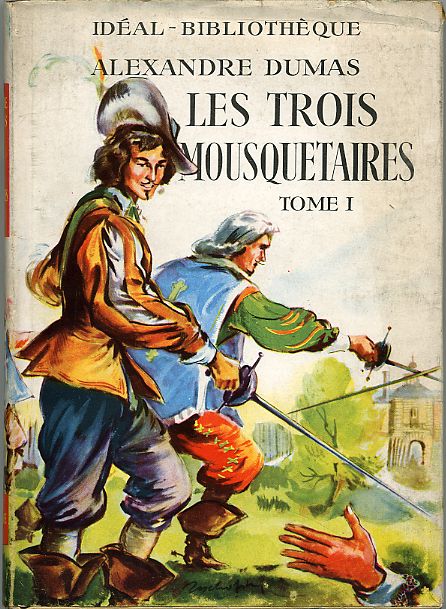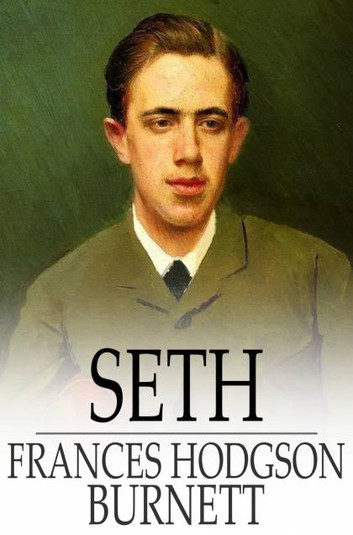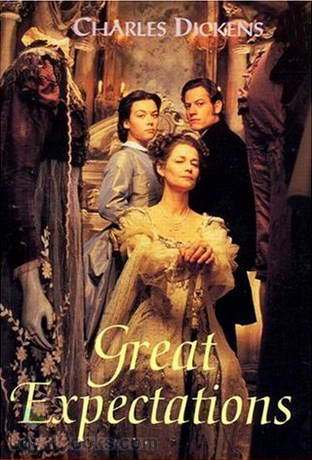
Summary: ثلاثُمائة وخمسٌ وستون خاطرةً موزَّعةً على أيام العام، لم تكن «شوارد» بقدر ما كانت «شواهد» على قدرة صاحبها على الإمساك بالفكرة العابرة وتسجيلها بأريحيَّة بارعة وصدق بالغ. في الحادي عشر من أبريل سنة ١٩٥٠م بدأ «عبد الوهاب عزَّام» تدوين خاطرته الافتتاحية حاثًّا نفسه وقارئه على مباراة الأيام ومسابقة الزمان في نصرة الحقِّ وتحقيق النَّفع، وهكذا فعل. فرغم انشغالات المؤلِّف العظيمة باحثًا ومترجمًا وناظمًا، فضلًا عن أعبائه الدبلوماسيَّة كسفير لمصر في الخارج، إلا إنه استطاع أن يدوام على كتابة خاطراته يوميًّا طوال عام كامل، وكان يُعوِّض أوَّلًا بأوَّل ما يفوته تدوينه في حينه، حتَّى اختتمها في ١٠ أبريل سنة ١٩٥١م. في شوارد عزَّام نطالع ما يمكن أن نَعُده مذكِّرات شخصية آراء نقديَّة أدبيَّة واجتماعيَّة وسياسيَّة، وحكمة رجلٍ مثقَّف من الطراز الرفيع.

Author: جبران خليل جبران
ترجمة أنطونيوس بشير حين يكتب «جبران» عن نبيِّه تتجسَّد القِيَم والمعاني الإنسانية التي تسمو بنفسها على أيِّ دينٍ أو عِرقٍ أو لون؛ إنها الإنسانية في أبهى صورها. لا شكَّ أن كتاب «النبي» هو دُرَّةُ ما كتبه «جبران خليل جبران»، وخلاصةُ ما توصَّلَ إليه، وعصارةُ تجارِبه الذاتية ونظرته الحياتية؛ فقد ضمَّنَه كلَّ آرائه في الحياةِ والموت، الطعامِ والشراب، الحبِّ والزواج، وغيرها؛ لذا فقد اعتبره جبران «ولادتَه الثانية» التي ظلَّ ينتظرها ألف عام. ويسرد جبران آراءَه على لسان الحكيم «المصطفى» الذي ظلَّ بعيدًا عن وطنه اثني عشر عامًا، وعاش بين سكان جزيرة «أورفاليس» كواحدٍ منهم، منتظرًا عودته إلى مسقط رأسه. وحينما ترسو السفينة ويحين موعدُ رحيله يرجوه سكانُ الجزيرة أن يخطب فيهم؛ فكانت خطبةُ الوداع التي لخَّصَ فيها مذهبه. لقد نجح جبران في كتابه في أن يتجاوز حدودَ ديانته، ليُرسيَ دعائمَ إنسانية تحترم الإنسانَ لكونه إنسانًا لا لأيِّ عاملٍ آخر.

Author: Alexandre Dumas
Dumas séduit, fascine, intéresse, amuse, enseigne. - Victor Hugo. - Tout le monde connaît la verve prodigieuse de M. Dumas, son entrain facile, son bonheur de mise en scène, son dialogue spirituel et toujours en mouvement, ce récit léger qui court sans cesse et qui sait enlever l'obstacle et l'espace sans jamais faiblir. Il couvre d'immenses toiles sans jamais fatiguer ni son pinceau, ni son lecteur. - Sainte-Beuve. - Les Trois Mousquetaires... notre seule épopée depuis le Moyen Age. - Roger Nimier. - Les Trois Mousquetaires forment le plus divertissant des romans d'aventures. Leurs personnages, Athos, Porthos, Aramis et d'Artagnan sont sortis des bibliothèques pour descendre dans la rue. Ils ont enseigné l'insolence et l'amitié à beaucoup de jeunes Français qui ont aussi découvert les fatalités de l'amour en rêvant aux belles épaules de Milady et à ses regards de perdition. - Kleber Haedens.

Author: Bernardin de Saint-Pierre
Extrait: « Il y avait planté encore des pépins et des noyaux de badamiers, de manguiers, d'avocats, de goyaviers, de jacqs et de jamroses. La plupart de ces arbres donnaient déjà à leur jeune maître de l'ombrage et des fruits. Sa main laborieuse avait répandu la fécondité jusque dans les lieux les plus stériles de cet enclos. Diverses espèces d'aloès, la raquette chargée de fleurs jaunes fouettées de rouge, les cierges épineux, s'élevaient sur les têtes noires des rochers, et semblaient vouloir atteindre aux longues lianes, chargées de fleurs bleues ou écarlates, qui pendaient ça et là le long des escarpements de la montagne. »

Author: Frances Hodgson Burnett
"Seth" is a deeply moving short story by Frances Hodgson Burnett, the author of many beloved childhood classics, including Little Lord Fauntleroy, The Secret Garden and A Little Princess. A young Englishman walks into a down-on-its-luck Tennessee mining town, and at first the locals are reluctant to accept him. But before long, Seth's selflessness has made him an important part of the community.

Author: Arthur Conan Doyle
Londres, 1912. Edward Malone, du Daily Gazette, est envoyé par son rédacteur-en-chef interviewer le terrible professeur George Challenger, dont la réputation est entachée par de nombreux scandales à la suite de bagarres avec des journalistes. Malone se fait passer pour un jeune étudiant pour mieux berner le professeur, mais il est rapidement démasqué : les deux hommes en viennent aux mains. Le journaliste refuse pourtant de porter plainte, ce qui amène le professeur à lui révéler sa découverte concernant l'existence de dinosaures encore vivants en Amérique du Sud d'après le carnet d'un certain Maple White, un explorateur ayant vu des choses formidables sur un haut-plateau coupé du monde moderne.

Author: Edmond About
Maître Alfred L'Ambert, ayant perdu son nez au cours d'un duel, décide de se faire greffer un morceau de peau pour le remplacer. Il ne trouve pour donneur qu'un jeune ouvrier fort peu fréquentable, au bras duquel il devra passer trente jours le nez cousu. La cohabitation ne sera pas sans difficultés ni surprises.Edmond About (1828-1880 fut l'un des rares auteurs français comiques du XIXe siècle. Dans le Nez d'un notaire, roman à succès dès sa publication en 1862, il multiplie les situations cocasses et réinvente avec humour l'union des classes.

Author: Mark Twain
A Tramp Abroad is a work of non-fiction travel literature by American author Mark Twain, published in 1880. The book details a journey by the author, with his friend Harris (a character created for the book, and based on his closest friend, Joseph Twichell), through central and southern Europe. While the stated goal of the journey is to walk most of the way, the men find themselves using other forms of transport as they traverse the continent. The book is often thought to be an unofficial sequel to an earlier Twain travel book,The Innocents Abroad. As the two men make their way through Germany, the Alps, and Italy, they encounter situations made all the more humorous by their reactions to them. The narrator (Twain) plays the part of the American tourist of the time, believing that he understands all that he sees, but in reality understanding none of it. The term “tramp” is meant as in a “walk-about” and not as in a “bum”.

Author: Charles Dickens
From the opening passage itself of Great Expectations by Charles Dickens, the reader is drawn into the world of the hero, Pip, who is at that time, seven years old. The author creates an unforgettable atmosphere: the gloom of the graveyard, the melancholy of the orphan boy, the mists rising over the marshes and the terrifying appearance of an escaped convict in chains. Told in first person (one of the only two books that Dickens used this form for, the other being David Copperfield) Great Expectations is a classic coming of age novel, in which we trace the growth and evolution of Pip or Philip Pirrip to give his full name. Pip has lost his parents very early in life and is being brought up by his much older sister and brother-in-law Joe Gargery. His sister is a dominating and shrewish woman, while Joe is an affectionate man. Joe's uncle Mr Pumblechook (another of Dickens' delightfully evocative names) asks Joe to send Pip to the stately mansion Statis House ostensibly to play with the owner Miss Havisham's adopted daughter Estella. This marks the beginning of a life-changing experience for Pip.

Author: Jozef Ignacy Kraszewski
Depuis quelques années, il s’est produit en France un vif élan vers la connaissance des langues et des littératures slaves. Si un second Shakespeare naissait en Angleterre, deux siècles ne se passeraient plus avant qu’il n’eût trouvé, de l’autre côté du Détroit, de bons traducteurs et une équitable appréciation de son génie. Aujourd’hui la France accorde des lettres de grande naturalisation à plus d’une illustration étrangère. Il est rare qu’elle s’y décide sans une hésitation d’ailleurs très naturelle. Son culte des gloires étrangères lui a procuré quelques mécomptes. Elle leur reste fidèle, dès qu’elle les a accueillies dans son Panthéon, mais elle les condamne parfois à un stage assez long. Elle a besoin souvent que, comme le ciel, on la prenne d’assaut. Or, les auteurs slaves en général et les auteurs polonais en particulier n’ont cure d’imposer leur réputation au dehors et ignorent l’art de se faire valoir.

Author: Jean-François Bladé
En ce temps-là les bêtes parlaient. Voici 10 contes du beau pays gascon. Le Loup, la Chèvre, le Renard vivent ensemble dans les bois. Il vont à la foire avec les paysans. Tout ce monde ne s'entend pas toujours très bien. Le Renard est cruel, mais il sera puni. Quant au Loup, il est trop bête, tant pis pour lui ! Les gentils petits animaux, le Chat, la Poulette, l'Oie et même le Limaçon réussissent bien mieux leurs affaires.